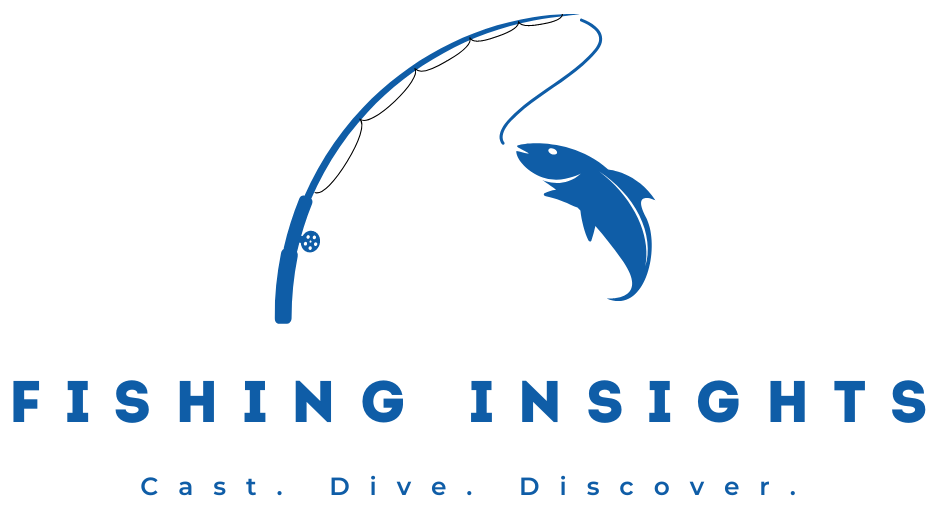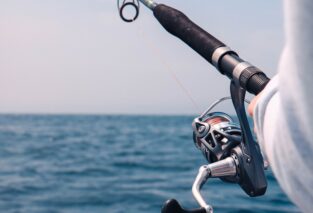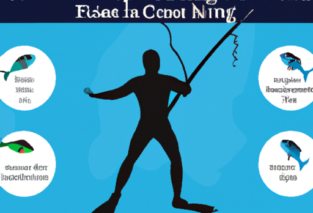Imagine you’re out on a serene lake, fishing rod in hand, ready for a day of relaxation and hopefully catching some fish. But, have you ever wondered if there are any unwritten rules when it comes to fishing? Well, look no further! “Understanding Fishing Etiquette: The Unwritten Rules Of Fishing” is here to guide you through the unspoken customs and practices that every angler should know. Whether you’re a seasoned fisherman or a beginner, this article will uncover the secrets to respecting fellow anglers, the environment, and the fish themselves. So, grab your tackle box and get ready to reel in some knowledge!
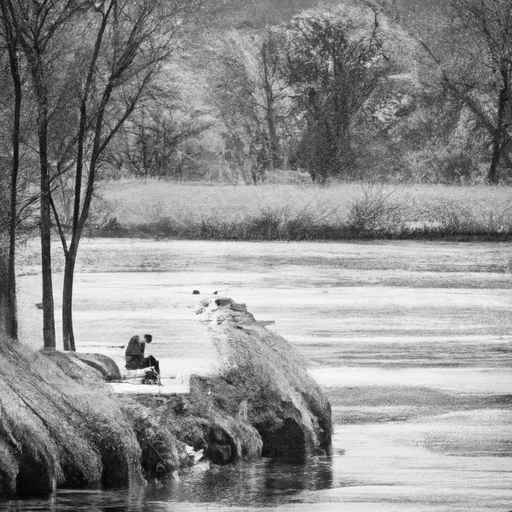
Understand the Basics of Fishing Etiquette
Fishing is not just about catching fish; it is also about respecting the environment and other anglers. To ensure a harmonious and enjoyable fishing experience for everyone, it is important to understand the basics of fishing etiquette. By following these unwritten rules, you can contribute to the overall camaraderie and preservation of the sport.
Respect Other Anglers’ Space
One of the fundamental principles of fishing etiquette is to respect the personal space of other anglers. When selecting your fishing spot, ensure that you maintain a safe and respectful distance from other fishermen. This not only allows everyone to fish comfortably but also helps prevent any unnecessary entanglements or disturbances.
Observe Quietness
Fishing is often regarded as a serene and peaceful activity, and it is essential to maintain a quiet ambiance to fully immerse yourself in the experience. By avoiding excessive noise and loud conversations, you not only increase your chances of a successful catch but also show consideration for fellow anglers who are seeking a tranquil environment. Remember, silence is golden when it comes to fishing.
Follow Local Regulations
Every fishing location has its own set of rules and regulations that must be followed to protect the ecosystem and ensure the sustainability of fish populations. Research and understand the fishing regulations specific to your chosen area before casting your line. This includes knowing catch limits, size restrictions, and certain restricted areas. By adhering to local regulations, you contribute to the preservation of both the fish populations and the natural environment.
Clean Up After Yourself
Leaving no trace is a core principle of fishing etiquette. It is your responsibility to clean up after yourself and leave the fishing area as you found it, if not better. Always bring a trash bag or container with you to dispose of any waste properly. Do not leave any trash behind, and if possible, recycle any recyclable materials. By practicing good stewardship, you help maintain the beauty of the fishing spot for future anglers.
Before You Cast Your Line
Before immersing yourself in the serene world of fishing, there are a few essential steps to take. These steps will ensure that you are prepared, responsible, and ready to fully enjoy your fishing experience while adhering to fishing etiquette.
Check for Fishing Permits and Licenses
Different locations have varying requirements when it comes to fishing permits and licenses. Research the local fishing regulations to determine whether you need any permits or licenses before casting your line. Obtaining the necessary documentation not only ensures that you are complying with the law but also supports conservation efforts by funding fishery management and research.
Dispose of Trash Properly
When fishing, it is crucial to bring a trash bag or container with you to dispose of any waste properly. Never leave any trash behind, as it not only spoils the beauty of the fishing spot but may also harm the local wildlife. Take all your trash with you when you leave and dispose of it in designated areas. If you come across any trash left behind by others, consider picking it up and disposing of it responsibly.
Leave No Trace
The concept of “leave no trace” is about minimizing your impact on the environment. In addition to properly disposing of your trash, consider other ways you can leave the fishing spot as pristine as you found it. Avoid damaging vegetation, minimize disturbance to the surrounding area, and be mindful of the footprints you leave behind. By leaving no trace, you contribute to the preservation of the natural habitat and maintain a healthy ecosystem.
Respecting Other Anglers’ Space
When it comes to fishing, personal space is important. Respecting the space of other anglers ensures a peaceful and enjoyable experience for everyone involved. Consider the following guidelines when sharing the fishing spot with others:
Maintain a Safe and Respectful Distance
When selecting your fishing spot, take into consideration the location of other anglers. Allow for ample space so that you do not encroach on their fishing area. By maintaining a respectful distance, you reduce the chances of tangling lines or causing any unnecessary disruptions.
Avoid Crossing Over Someone’s Line
When moving around the fishing area, be mindful of other anglers’ lines. Crossing over someone’s line can not only disrupt their fishing but also create a potential safety hazard. Always observe your surroundings and take care to avoid stepping or casting over someone’s line.
Avoid Casting Over Other Anglers
To ensure a harmonious fishing experience, avoid casting your line over other anglers. This can cause frustration and may result in entanglements or lost hooks. Aim your cast in a direction that allows for a safe and uninterrupted fishing experience for both you and your fellow anglers.
Be Mindful of the Fishing Spot
When fishing in a particular spot, it is essential to remain respectful and considerate. Avoid monopolizing an area for an extended period, especially if others are waiting for their turn. Rotate your position to give everyone a fair chance of accessing the prime fishing spots. This courtesy ensures equal opportunities and encourages positive interactions with fellow anglers.
Practicing Quietness
Fishing is an activity that often requires patience and concentration. By practicing quietness and creating a serene ambiance, you enhance the overall fishing experience and increase your chances of a successful catch. Consider the following tips to maintain a peaceful atmosphere:
Avoid Excessive Noise
Loud conversations, music, or unnecessary noise can disrupt not only your focus but also the concentration of other anglers. Be mindful of your volume and avoid any excessive noise that could disturb the fishing spot’s tranquility. Embrace the soothing sounds of nature and allow yourself to fully immerse in the peacefulness that fishing offers.
Avoid Disturbing Wildlife
Part of the allure of fishing is being able to witness wildlife in their natural habitat. Respect the wildlife and do not deliberately disturb them. Avoid casting your line near nesting areas or inhabited underwater structures, as this could disrupt the breeding or feeding patterns of aquatic life. Strive to be a responsible observer, appreciating the beauty of nature from a safe and respectful distance.
Keep the Ambiance Serene
Fishing is often a personal endeavor, offering a much-needed respite from the noise and distractions of everyday life. Keep the ambiance serene by minimizing any unnecessary activities that could disrupt the tranquility. Use gentle movements, speak in hushed tones, and embrace the peace and calmness that fishing provides.
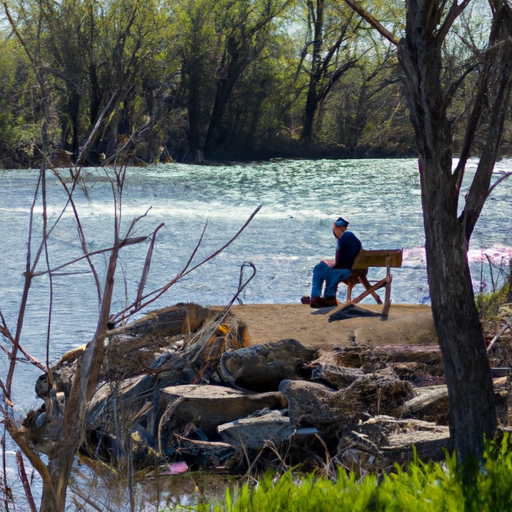
Understanding Local Regulations
To ensure the sustainability of fish populations and the overall health of aquatic ecosystems, fishing regulations are put in place in different locations. It is essential to understand and adhere to these regulations to contribute to the preservation of fish populations and the environment. Consider the following guidelines:
Research and Follow Fishing Regulations
Before embarking on your fishing journey, take the time to research and understand the fishing regulations applicable to your chosen location. These regulations can include catch limits, size restrictions, seasonal restrictions, and prohibited fishing methods. By familiarizing yourself with these guidelines, you can actively participate in the conservation efforts and ensure the longevity of the sport.
Respect Catch Limits and Size Restrictions
Catch limits and size restrictions are essential in maintaining the balance of fish populations and protecting the reproductive abilities of various species. Adhere to the catch limits set by local authorities and release any undersized or protected fish back into the water. This responsible approach ensures that future generations can continue to enjoy the excitement of catching fish.
Adhere to Restricted Areas
Certain fishing spots may have restricted areas or protected zones to safeguard sensitive ecosystems or endangered species. It is essential to respect and adhere to these restrictions. Follow any posted signs and avoid fishing in designated restricted areas. By doing so, you contribute to the overall health of the surrounding environment.
Follow Seasonal Regulations
Fish populations can be influenced by seasonal changes, migratory patterns, and breeding seasons. To give fish the best chance of survival, pay attention to any seasonal regulations that may be in effect. These regulations may restrict the fishing of certain species during breeding seasons or limit fishing in certain areas during critical times. Stay informed and adjust your fishing plans accordingly.
Keeping Your Fishing Area Clean
As responsible anglers, it is our duty to leave the fishing area cleaner than we found it. By practicing good environmental stewardship, we can contribute to the preservation of our natural resources. Consider the following tips for keeping your fishing area clean:
Properly Dispose of Trash
Always bring a trash bag or container with you to collect any waste generated during your fishing trip. From empty bait containers to snack wrappers, make sure all trash is properly disposed of in designated receptacles or taken with you when you leave. Never leave any trash behind, as it can harm wildlife, pollute the water, and detract from the beauty of the fishing spot.
Pack Out What You Pack In
In addition to disposing of your own trash, consider going the extra mile and picking up any litter left behind by others. Leaving no trace involves pack-out what you pack in principle. By taking the initiative to remove any litter, you contribute to the overall cleanliness and preservation of the fishing spot. Remember, a clean fishing area benefits everyone.
Avoid Polluting the Water
Preserving the quality of the water is vital for maintaining healthy fish populations and the surrounding ecosystem. Avoid polluting the water by not disposing of any chemicals or harmful substances, such as fishing line, hooks, or bait, into the water. Dispose of these items properly and recycle fishing line when possible. By making a conscious effort to minimize pollution, you are taking an active role in preserving aquatic habitats.
Respect the Environment
Fishing is not just about catching fish; it is about fostering a connection with nature. To ensure the preservation of our natural environment, it is crucial to respect and appreciate the beauty of the world around us. Avoid damaging plants or trees, minimize erosion by using established paths, and take precautions to prevent any disturbances to the surrounding area. By respecting the environment, we can continue to enjoy the wonders of fishing for generations to come.
Checking for Fishing Permits and Licenses
Before embarking on your fishing adventure, it is essential to determine whether you need any permits or licenses to fish legally in your chosen location. Consider the following steps to ensure compliance with local regulations:
Research Local Fishing Requirements
Different bodies of water or fishing locations may have varying requirements when it comes to permits and licenses. Research the specific fishing requirements for your chosen area, such as freshwater or saltwater fishing regulations. This information is readily available online or can be obtained from local fishing authorities. By understanding the regulations, you can avoid any legal issues and contribute to responsible fishing practices.
Obtain Appropriate Permits and Licenses
Once you have determined the necessary permits and licenses for your fishing excursion, ensure you obtain them before casting your line. Fishing permits and licenses may be available for purchase online, at local bait shops, or through designated government agencies. Carry these documents with you at all times while fishing, as they serve as proof of your compliance with local fishing regulations.
Understand Catch and Size Restrictions
In addition to obtaining the necessary permits and licenses, familiarize yourself with catch and size restrictions that may be specific to your fishing location. Catch limits and size restrictions are put in place to protect fish populations and ensure their long-term sustainability. By understanding and adhering to these restrictions, you actively participate in the preservation of fish populations and contribute to the overall health of the ecosystem.
Disposing of Trash Properly
The golden rule of fishing etiquette is to leave the fishing spot cleaner than you found it. Properly disposing of trash ensures the preservation of the natural environment and the enjoyment of future anglers. Consider the following steps to dispose of trash responsibly:
Bring a Trash Bag or Container
Always come prepared by packing a trash bag or dedicated container specifically for collecting trash during your fishing trip. This simple step ensures that any waste generated during your time on the water has a designated place for disposal.
Do Not Leave Trash Behind
Avoid leaving any trash behind, regardless of its size or type. Always double-check your fishing area before leaving to ensure that you have not overlooked any trash. Even small bits of litter can harm local wildlife and disrupt the delicate balance of the ecosystem.
Recycle Whenever Possible
When disposing of your trash, separate recyclable materials from non-recyclable waste. Many fishing areas have recycling bins or designated areas for recyclables. By making a conscious effort to recycle, you reduce environmental impact and contribute to the sustainability of our natural resources.
Leaving No Trace
The philosophy of “leave no trace” is a guiding principle to minimize our impact on the natural environment. By following these practices, we can ensure that future generations can enjoy pristine fishing spots. Consider the following steps to leave no trace:
Avoid Damaging Vegetation
When navigating your fishing area, be mindful of any vegetation such as plants or trees. Avoid stepping on or damaging vegetation, as it plays a crucial role in the surrounding ecosystem. By taking care to preserve vegetation, you contribute to the overall health and beauty of the fishing spot.
Minimize Disturbance to the Surrounding Area
The tranquility of the fishing spot relies on minimizing disturbances to the surrounding environment. Avoid excessive noise, rowdy behavior, or any actions that might disrupt the peacefulness of the area. Be conscious of your impact and strive to leave the fishing spot as undisturbed as possible.
Leave the Fishing Spot as You Found It
A fundamental principle of leaving no trace is ensuring that the fishing spot remains unchanged by your presence. Be thorough when cleaning up after yourself, picking up any trash or discarded fishing equipment. Take all necessary steps to restore the fishing spot to its natural state, or preferably, in an even better condition than when you arrived.
Respecting the Environment
Respecting the environment goes beyond adhering to regulations and cleaning up after ourselves. It involves an ongoing commitment to preserving the natural beauty of our fishing spots. Consider the following tips to respect and protect the environment:
Avoid Damaging Plants or Trees
Plants and trees contribute to the overall health and biodiversity of the surrounding area. Avoid damaging these crucial components of the ecosystem by being mindful of your actions. Refrain from breaking branches, trampling through delicate vegetation, or causing any unnecessary harm to the plants or trees.
Minimize Erosion and Disturbance
Erosion can have detrimental effects on both the land and the water. Help preserve the integrity of the fishing spot by minimizing erosion. Stick to established paths whenever possible, avoid walking on sensitive areas or loose soil, and be mindful of any runoff that may carry sediment into the water. By taking precautions, you contribute to the long-term sustainability of the fishing area.
Report Any Environmental Concerns
As responsible anglers, we have a duty to help protect and maintain the environment. If you observe any environmental concerns, such as pollution, wildlife disturbances, or suspicious activities, report them to the appropriate authorities. By taking an active role in reporting and addressing these issues, you help protect and preserve our natural resources.
In conclusion, understanding and practicing fishing etiquette is essential for maintaining a harmonious fishing experience. By respecting other anglers’ space, observing quietness, following local regulations, and keeping the fishing area clean, we can ensure the sustainability of the sport and the preservation of our natural environment. Remember, fishing is not just about catching fish; it is about fostering a connection with nature and appreciating the beauty that surrounds us. So, let’s embrace the unwritten rules of fishing etiquette and contribute to a positive and enjoyable fishing experience for everyone.
